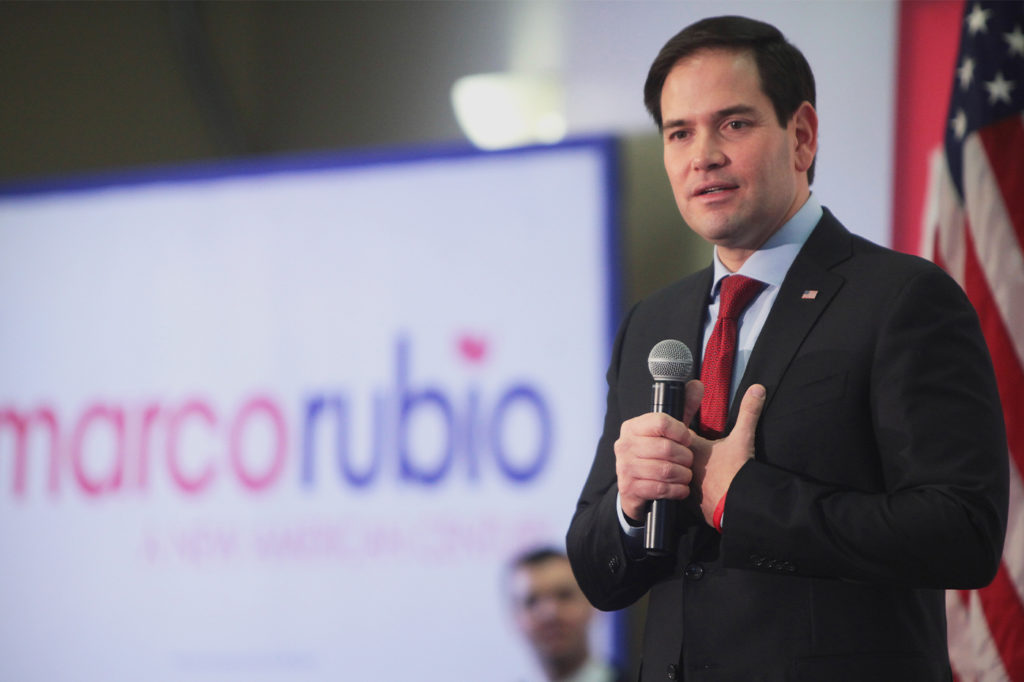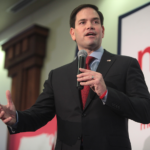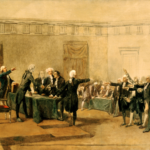This essay is part of our series on Race and Racism in America. See the full collection here.
The murder of Mr. Floyd at the hands of law enforcement officers was an outrageous crime that has shocked this nation. But it would be a mistake to conclude that the unrest of the last two weeks is only about his death or relations with the police.
At its core, this unrest is about the question of what kind of society we are, and what kind of society we want to be.
The murder of Mr. Floyd at the hands of law enforcement officers was an outrageous crime that has shocked this nation. But it would be a mistake to conclude that the unrest of the last two weeks is only about his death or relations with the police.
Start your day with Public Discourse
Sign up and get our daily essays sent straight to your inbox.A society is a voluntary agreement by people to live together. For a society to thrive, those in it must believe their interests are protected and their voices are heard. But when a substantial number of people in a society come to believe that they are not valued, they do not matter or they are not wanted, then that society will have big problems.
For decades, African Americans have complained that they feel that their voices are ignored, their problems are not addressed, and their lives are not valued. Given our nation’s history with race, this is an uncomfortable grievance, and one many would rather avoid. But like a bad debt that must eventually be paid, it is a grievance we can no longer ignore.
Like before, the latest unrest has given rise to voices arguing that the foundations of our republic are built on systemic racism and must therefore be brought down. The only difference is that this time claims like these don’t just come from the fringes of our politics. Like before, we also have voices who say that today race is a factor only in individual cases, distinct from our society at large.
Both of these views are wrong.
The foundations of our country are not irredeemably racist. Abolition, women’s suffrage, desegregation, the Civil Rights movement—these were not appeals to overthrow our values, these were demands that we fulfill them. And the Constitution that once considered slaves three-fifths of a human being was ultimately the vehicle used to free them and, eventually, to secure their most basic rights.
We have made tremendous progress on racial equality over the last fifty years, but there remain shocking racial disparities on health, on education, on housing, on economics and criminal justice. And there remains the fundamental truth that, any society in which a substantial percentage of the people believe that they are treated unjustly, is a society that has a problem—a society that can never fulfill its full potential unless those grievances are addressed.
None of this excuses radical, violent extremists’ setting fires, looting buildings, and hurting innocent people. It also shouldn’t lead us to stupid ideas like de-funding the police. And this is not going to be fixed by endless e-mails from corporation after corporation trying to prove how “woke” they are, even as they outsource your job to China. But it’s also not going to be fixed by pretending that race is no longer an issue, and by accusing everyone who disagrees and says it is, of hating America.
Yes, there are still vile racists among us, although few of them will ever openly admit it. But, in twenty-first-century America, few people consider themselves racists. The primary reason why race remains relevant today is that the African American community faces a unique set of challenges that far too few people in positions of power and politics fully understand.
Imagine a child who is raised in a stable home in a safe neighborhood, attends a good school, and has a private tutor to help them prepare for the SAT. Meanwhile, another child—just two miles away—is raised by one parent or even a grandparent, living in substandard housing in a dangerous neighborhood. That child attends a school that is failing—or failing them—and has no access to a private tutor for the SAT. On most days, he doesn’t even have access to WiFi.
Do these two kids really have an equal opportunity to go to the same college?
If one college student has the connections and money to complete unpaid internships in the summer or study abroad, and another student has to work in the summer just so they can afford to go back to school in the fall, do they really have an equal opportunity to get hired when they graduate?
If one young adult does something stupid and gets arrested, his parents can hire good lawyers, and he is able to avoid having a criminal record. Meanwhile, another young adult who does the exact same thing has to use a public defender, pleads guilty to a lesser charge, and now has a criminal record. Do they really have an equal opportunity when they apply for the same job?
When policymakers encourage sending manufacturing jobs that once employed African American men overseas, in an effort to benefit those employed in technology and finance, how can we truly expect widespread prosperity for all Americans? And when a disproportionate number of those with these disadvantages come from one race, while a disproportionate number of those with the advantages comes from another, the result is a racial disparity.
Some suggest these disparities are the result of institutionalized racism or of a deliberate effort designed to harm African Americans. I believe that it’s the product of something far less sinister, but sometimes equally damaging.
It is the result of racial indifference.
The fact is, many in positions of power and influence are oblivious to or unaware of the unique challenges disproportionately facing African American communities across this country. We must now acknowledge these challenges and address these disparities that they create, because when disparities go unaddressed, they become grievances. And when grievances are ignored, it leads to friction, division, and unrest.
By no means do these disparities alone fully capture the entirety of the challenge before us. There still remain points of friction more reminiscent of a different and shameful era in our history, and here too we can suffer from indifference. The vast majority of Americans simply do not personally know the sting that comes from implicit—and sometimes explicit—reactions to the color of your skin.
True progress requires that we listen to the viewpoints of those who do.
Listen to the young man I know, who sees reports of a young man that looks like him, like his uncles, like his grandfather, being murdered by vigilantes in a case of mistaken identity. Who knows that, had they not taken a video of themselves doing this, they would have gotten away with it. Listen, and he will tell you that he feels his life wouldn’t matter either, if he didn’t play professional football.
Listen to the police officer I know, who was pulled over while off duty at least seven times by his own department for no reason. And he will tell you of the humiliation of having to explain this to his teenage son.
Listen to what it feels like for African Americans to see on the news that, when a mother in Miami recently drowned her own autistic son in a terrible tragedy, she tried to cover it up by falsely telling the police that he had been abducted by two African American men demanding drugs.
And listen to what it feels like for them to read about the indictment of the Chief of Police of Biscayne Park, Florida, who—so that he could brag about having a perfect crime-solving record—ordered his officers to arrest anybody black walking through their streets, and if they had any kind of criminal record, pin one of their unsolved crimes on them.
Listen, not because it is your fault. Not because you are to blame. Listen, because this is what people who want to live together in harmony must do. This is the respect we owe one another, as colleagues, as co-workers. This is the empathy that is required of us as neighbors, as friends, and as children of the same God.
This may not be YOUR fault. But this is OUR problem. Until we heal this divide, we will never, ever have the kind of society we want. And we will never fulfill the full promise of our nation.
There is reason for hope. Even in a deeply divided country, where the political and cultural lines that divide us continue to harden, a clear consensus has emerged that we can no longer ignore matters of race in America.
There is reason for hope. Even in a deeply divided country, where the political and cultural lines that divide us continue to harden, a clear consensus has emerged that we can no longer ignore matters of race in America. But it is a fragile consensus. It is already being tested by loud voices appealing to our most basic fears, and those who see this time as an opportunity to advance divisiveness and extreme ideas.
If this is the path we choose, we will all look back at this time with profound regret. We will be left with a society that is even angrier and more divided than it is now. We will be left with an America that no longer resembles the one we honor when we stand during the national anthem. And ironically, we will also be left with an America even further away from the one some kneel to demand.
The only way forward is to treat each other with the empathy and respect required of a people who have decided to share a nation—and a future.
The above text was delivered as a floor speech by Senator Rubio on June 9th, 2020.
















